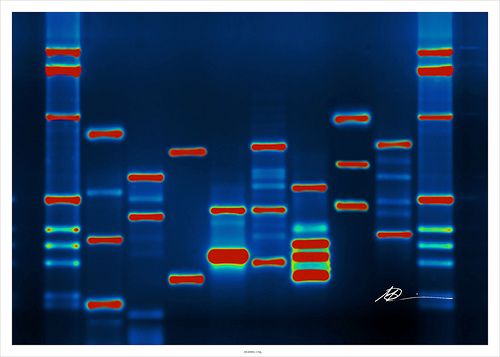
Brendan I. Koerner at Wired, explores the ramifications of the authorities requesting DNA from ancestry sites:
Mitch Morrissey, Denver’s district attorney and one of the nation’s leading advocates for familial DNA searching, stresses that the technology is “an innovative approach to investigating challenging cases, particularly cold cases where the victims are women or children and traditional investigative tactics fail to yield a solid suspect.” Familial DNA searches have indeed helped nab people who might otherwise have evaded justice. In the most celebrated example, Los Angeles police arrested a man believed to be the Grim Sleeper serial killer after discovering that the crime scene DNA shared a significant number of genetic markers with that of a convicted felon—who turned out to be the man’s son.
But the well-publicized success stories obscure the fact that familial DNA searches can generate more noise than signal. “Anyone who knows the science understands that there’s a high rate of false positives,” says Erin Murphy, a New York University law professor and the author of Inside the Cell: The Dark Side of Forensic DNA. The searches, after all, look for DNA profiles that are similar to the perpetrator’s but by no means identical, a scattershot approach that yields many fruitless leads, and for limited benefit. In the United Kingdom, a 2014 study found that just 17 percent of familial DNA searches “resulted in the identification of a relative of the true offender.”
The technology’s limitations have the potential to cause real harm: What if Michael Usry was not a filmmaker, for example, but rather a high school teacher whose alleged involvement in a girl’s murder was leaked to the media? Yet despite all that can go wrong, few states have developed guidelines. California, Colorado, Virginia, and Texas have detailed policies regarding how and when familial DNA searches can take place; Maryland and the District of Columbia explicitly forbid the technique. Elsewhere in the nation, cops are largely free to search as they see fit, which is why Idaho Falls police decided it was OK to sift through an Ancestry database of genetic data from thousands of people with no criminal records.